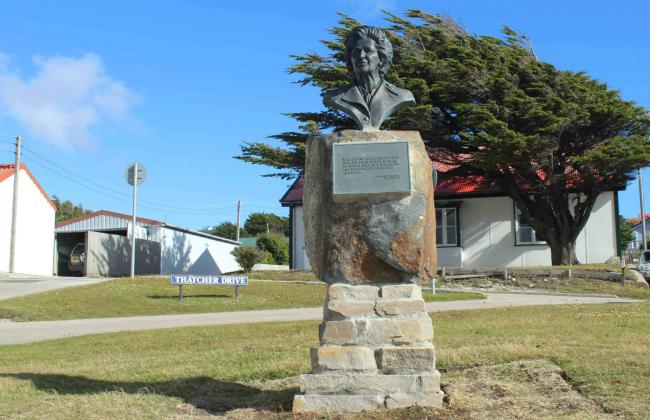
Promising a shock treatment of economic austerity, anarcho-capitalist Javier Milei was inaugurated as Argentina’s new president on Sunday, December 10, 2023. Despite entrenched Peronist clientelist networks and grassroots resistance from feminist political movements, Milei successfully modeled his campaign on the authoritarian populism of Donald Trump and Jair Bolsonaro, stoking national anger and resentment amid soaring rates of 143 percent inflation and 40 percent poverty in Argentina.
Milei has pledged to gut state-funded social programs, wielding a chainsaw and cosplaying as General Ancap, an anarcho-capitalist superhero meme. The country's Health, Work, and Education Ministries are set to be merged into a Ministry of Human Capital, following in the far-right footsteps of Hungarian authoritarian populist Viktor Orbán. Milei has also denied the number of disappeared victims of Argentina’s military dictatorship, recruiting as his vice-presidential running mate Victoria Villarruel, an apologist for state terror and daughter of a military officer who participated in counterinsurgency operations. On December 1, he named Rodolfo Barra, a former member of the neo-Nazi Tacuara Nationalist Movement, as Argentina’s new Attorney General.
Milei’s menacing campaign antics have led to sensational speculation that he might repeat the follies of the fascist dictatorship and order the military to recapture the Falkland Islands, or Islas Malvinas in Spanish.
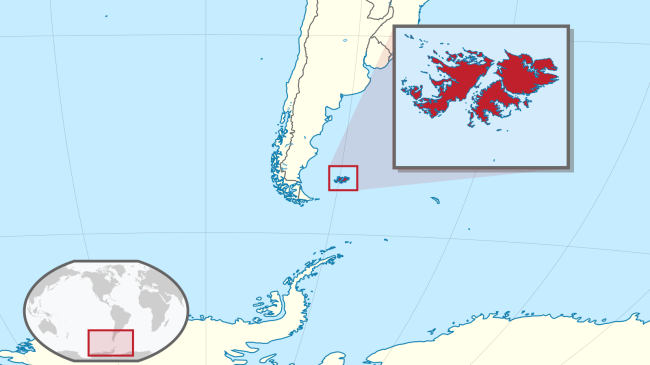
Sovereignty in the South Atlantic
The Falklands/Malvinas, located about 300 miles (480 km) off Argentina’s southern coast, are a former British Crown Colony, yet they are handled as an ongoing “special and particular colonial case” in international law. Since the decline of the British Empire following World War II, when most former colonies in Asia, Africa, and the Americas gained independence through decolonization, the Falklands/Malvinas has remained under British sovereignty—apart from 74 days in 1982 when the Argentine military occupied the islands. Former British Prime Minister Margaret Thatcher responded to the occupation with force, and the British military recovered the islands in a relatively swift yet violent war.
The British victory in the South Atlantic established Thatcher as the formative figure responsible for implementing widespread neoliberal economic policies with the apparent consent of “the people.” To mobilize military forces, Thatcher referred to the Falkland Islanders as “kith and kin” of a similar British “island race,” an authoritarian populist appeal to whiteness as well as a way to salvage what remained of the declining British Empire.
Even after General Leopoldo Galtieri’s military junta surrendered in 1982 and democracy was restored in 1983, Argentina has continued to assert its claim to the islands. While struggling to overcome economic crisis from debt and inflation, Presidents Néstor Kirchner and Cristina Fernández de Kirchner revived the Malvinas sovereignty cause as a core value of Peronism. Seeking to renovate Argentina’s damaged national narrative, Fernández de Kirchner’s government attempted to pass bills that threatened oil companies exploring near the islands with legal action and banned ships that fly a Falklands flag from docking in ports of the province of Buenos Aires. This was arguably an authoritarian-democratic form of populism.
Under the most recent administrations of Mauricio Macri and Alberto Fernández, the Argentine Foreign Ministry has continued to argue that the islands are within its waters. As a result, Argentina has gained considerable support from the international community. Year after year, the UN Special Committee on Decolonization (also known as the Committee of 24, or C24) has backed Argentina’s position. The Falklands/Malvinas was renamed a British Overseas Territory in 2002, but it remains on the UN’s list of “non-self-governing territories.” Moreover, a commercial fishing boom and discoveries of offshore oil, through unilateral drilling licensed by the British Falkland Islands Government, have raised the stakes of the sovereignty dispute. Responding to renewed sovereignty claims from Argentina, the Falkland Islanders held a referendum on self-determination in 2013, voting 99.8 percent in favor of remaining British, with just three “no” votes out of 1,517 valid ballots.
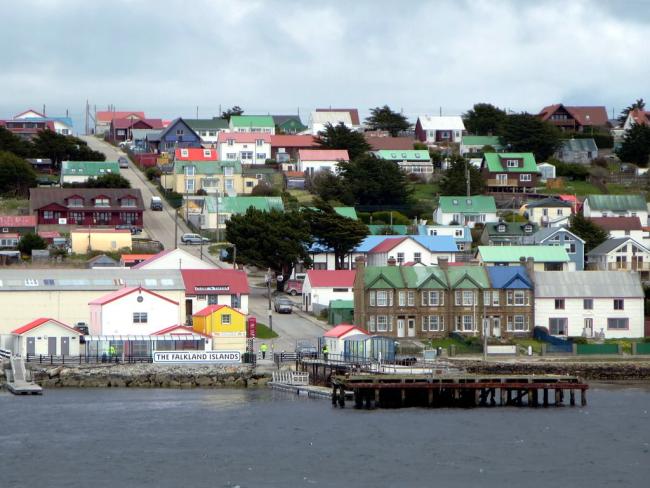
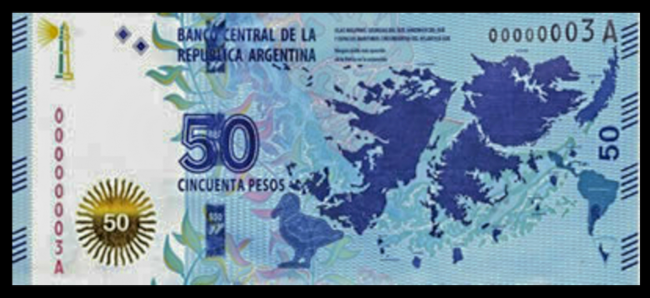
Milei recently asserted “non-negotiable sovereignty” over the islands, adhering to Argentina’s constitution. But, far from the kind of saber-rattling one might expect from an erratic firebrand like Milei, he was only inspired to make this statement after veterans of the 1982 war repudiated him for praising Thatcher as one of “the great leaders in the history of humanity.” While it would have been political suicide for Milei to deny Argentina’s popular national Malvinas claim, he has expressed an unusual diplomatic position for an Argentine politician to recognize “the will of the people living in the Islands, because they live in line with conditions of a developed country, and not a miserable country like the one we have now [in Argentina].”
Likening the dispute to the transfer of Hong Kong to China, Milei has suggested forming a long-term leaseback agreement with the UK that “respects the people's wishes.” This echoes Thatcher, who wrote in her memoir: “The battle on self-determination is between those who believe that ‘interests’ can be paramount (in which case governments can decide what is in the best interests of the people) and those who say that the peoples [sic] expressed wishes are the proper guide to these interests and the proper yardstick for self-determination.” Since the 1982 war, the British position has centered on the “paramountcy” of the islanders’ wishes. However, it bears reminding that before the Argentine dictatorship invaded the islands, Nicholas Ridley, a member of Thatcher’s administration, pushed for the islanders to consent to a leaseback deal with Argentina in 1980.
Milei’s appeasing diplomatic strategy, a mixture of Argentine self-loathing and admiration for Thatcher’s historic defense of the Falkland Islanders’ self-determination claim, is rooted in childhood trauma that may help explain Milei’s authoritarian populism more generally. According to Milei, his “fearlessness” is the product of the physical and mental abuse he received from his father precisely on April 2, 1982, the day that the Argentine task force invaded the Falklands/Malvinas, overtaking the few British Royal Marines stationed there. The 11 year-old Javier declared that the decision of Galtieri’s military dictatorship to occupy the Falklands/Malvinas was “delusional” given the unequal military forces. “My father went into a fit of rage. He started punching and kicking me. He was kicking me all over the kitchen,” Milei recalled in an interview with journalist Agustín Gallardo five years ago. “When I grew up, he stopped beating me but continued to inflict psychological violence,” he said. “He always told me I was trash, that I was going to die of hunger, that I was going to be useless.” Thus, even though Argentina lost the war, Milei was vindicated when Thatcher’s British military emerged victorious on June 14, 1982. His successful presidential campaign of 2023 has proven his father wrong once again.
Unlikely Allies
As an Argentine avatar of Thatcher, Milei brings the country’s Malvinas strategy full circle, back to a far-right diplomatic consensus with the United Kingdom. Similar to Thatcher, Milei’s authoritarian populist vision blends neoliberal reforms with a distorted interpretation of democracy to restore national power. Having defeated the Argentine dictatorship in the war over the Falklands/Malvinas, the Iron Lady leveraged the United Kingdom's patriotic political mood to secure the Conservative party’s power and fight so-called enemies within. This included both organized miners’ unions and criminalized Black Britons. These are precisely the sort of authoritarian tactics that have inspired Milei’s anarcho-capitalist political doctrine.
Harkening back to Argentina’s late neoliberal President Carlos Menem (1989–1999), Milei has not only pledged to dollarize Argentina’s national currency, but he may also attempt to replicate the charm offensive of Guido di Tella, the foreign minister who served under Menem. In addition to agreeing to cooperate on oil interests with the United Kingdom, di Tella made regular phone calls to Falkland Islands Government Legislative Assembly members and sent residents hand-signed Christmas cards and Winnie-the-Pooh teddy bears.
It is no wonder, then, that Falkland Islanders have already expressed relief that Milei will be in power and focused primarily on domestic austerity measures, rather than another Peronist committed to reclaiming Argentine sovereignty. Nonetheless, the election of Milei and his counterintuitive reopening of diplomatic channels, has also brought fresh appeals from the left in the United Kingdom to seize this moment to transfer the islands to Argentina.
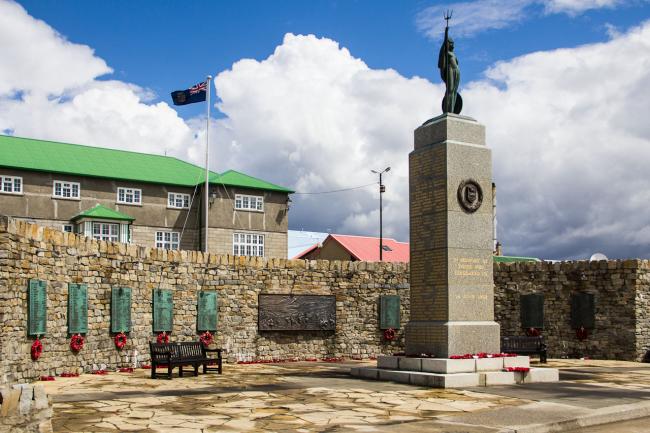
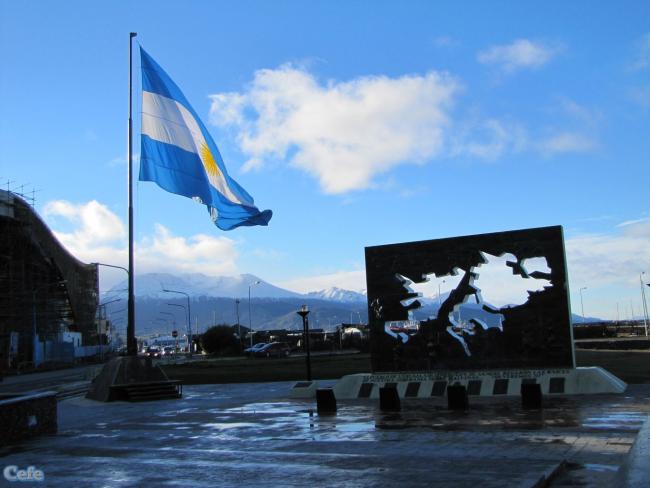
Milei’s rise to popularity came at a time when the sovereignty dispute had just been reignited at a July 2023 summit of the European Union (EU) and the Community of Latin American and Caribbean States (CELAC), where 27 EU member states and 32 of the 33 CELAC countries endorsed a declaration stating: “Regarding the question of sovereignty over the Islas Malvinas/Falkland Islands, the European Union took note of CELAC’s historical position based on the importance of dialogue and respect for international law in the peaceful solution of disputes.” The Peronist government of Alberto Fernández hailed the use of the label “Malvinas,” and the recognition of an unresolved sovereignty dispute over the British Overseas Territory as a “triumph of democracy.” Defending the Falkland Islanders’ right to self-determination, U.K. Prime Minister Rishi Sunak, a staunch Thatcherite like Milei, criticized the EU for its “regrettable choice of words.” Then, when Milei indicated he wanted to “get [the islands] back” for Argentina after facing criticism from war veterans, Sunak’s official spokesperson said the “UK government will continue to proactively defend the islanders’ right to self-determination. It was an issue that was settled decisively some time ago.”
These contending rights claims over the Falklands/Malvinas work against our preconceptions of democracy. Falkland Islanders point out that Argentina’s claim to sovereignty through territorial integrity belies its violent colonial history of national expansion through dispossession. However, rather than a decolonial defense of Indigenous land, I argue that the islanders’ self-determination claim may be understood—similar to Milei’s anarcho-capitalist political doctrine—as another manifestation of authoritarian populism, the persistent ideology that critical theorist Stuart Hall originally conceptualized to interrogate Thatcherism in the wake of the Falklands/Malvinas War. Hall described authoritarian populism as a conjuncture of capitalist state domination with popular consent.
In this sense, the 2023 Argentine presidential election and the 2013 Falklands referendum on self-determination were both part of a global trend of authoritarian populism. This trend has transformed the world order by bringing far-right demagogues into seats of power, from Viktor Orbán in Hungary and Vladimir Putin in Russia to Donald Trump in the United States, Jair Bolsonaro in Brazil, and Boris Johnson in the United Kingdom. The 2016 Brexit referendum for the United Kingdom to leave the European Union, which Johnson championed, may have negative long-term repercussions for the Falkland Islanders’ export economy with the introduction of tariffs, but the results of all three ballots—the Falklands referendum in 2013, Brexit in 2016, and the Argentine presidential election of 2023—were rooted in the authoritarian populist ideology of Thatcherism.
As Hall keenly observed, Thatcher constructed her nationalist project of neoliberalism by appealing to “the people” in the 1982 war to defend the Falkland Islanders’ wishes for self-determination against Argentina’s military dictatorship. For Thatcher, the Falklands/Malvinas had become a powerful metonym for imperialist nostalgia, transmitted through a smokescreen of patriotic glory for democracy’s triumph over totalitarianism. In an ironic twist, Milei has harnessed a similar sense of nostalgia to “Make Argentina Great Again.”
James J. A. Blair is Associate Professor in Geography and Anthropology at California State Polytechnic University, Pomona. He is the author of a Salvaging Empire: Sovereignty, Natural Resources, and Environmental Science in the South Atlantic (Cornell University Press, 2023). For more, visit: www.jamesjablair.com.

